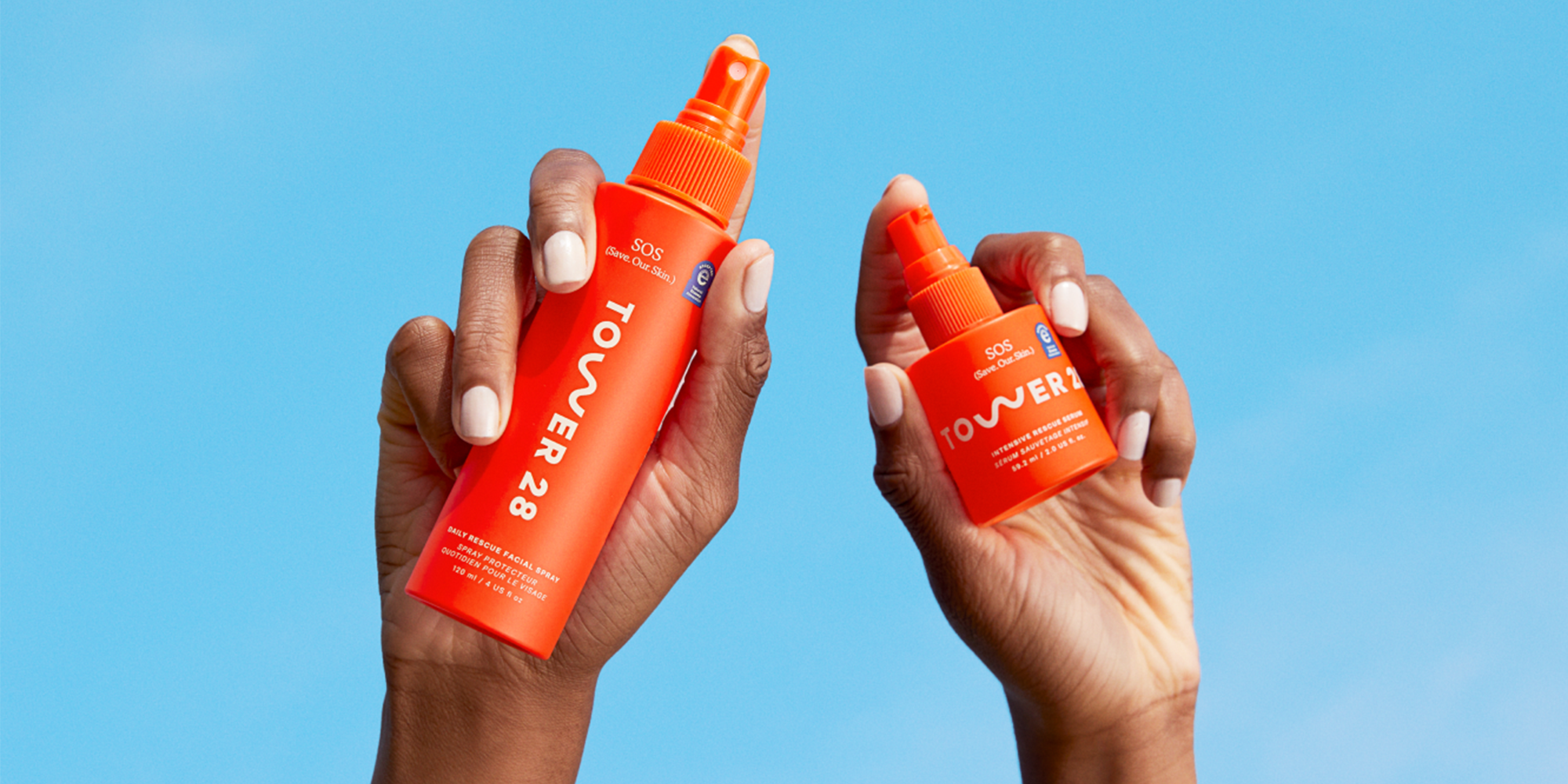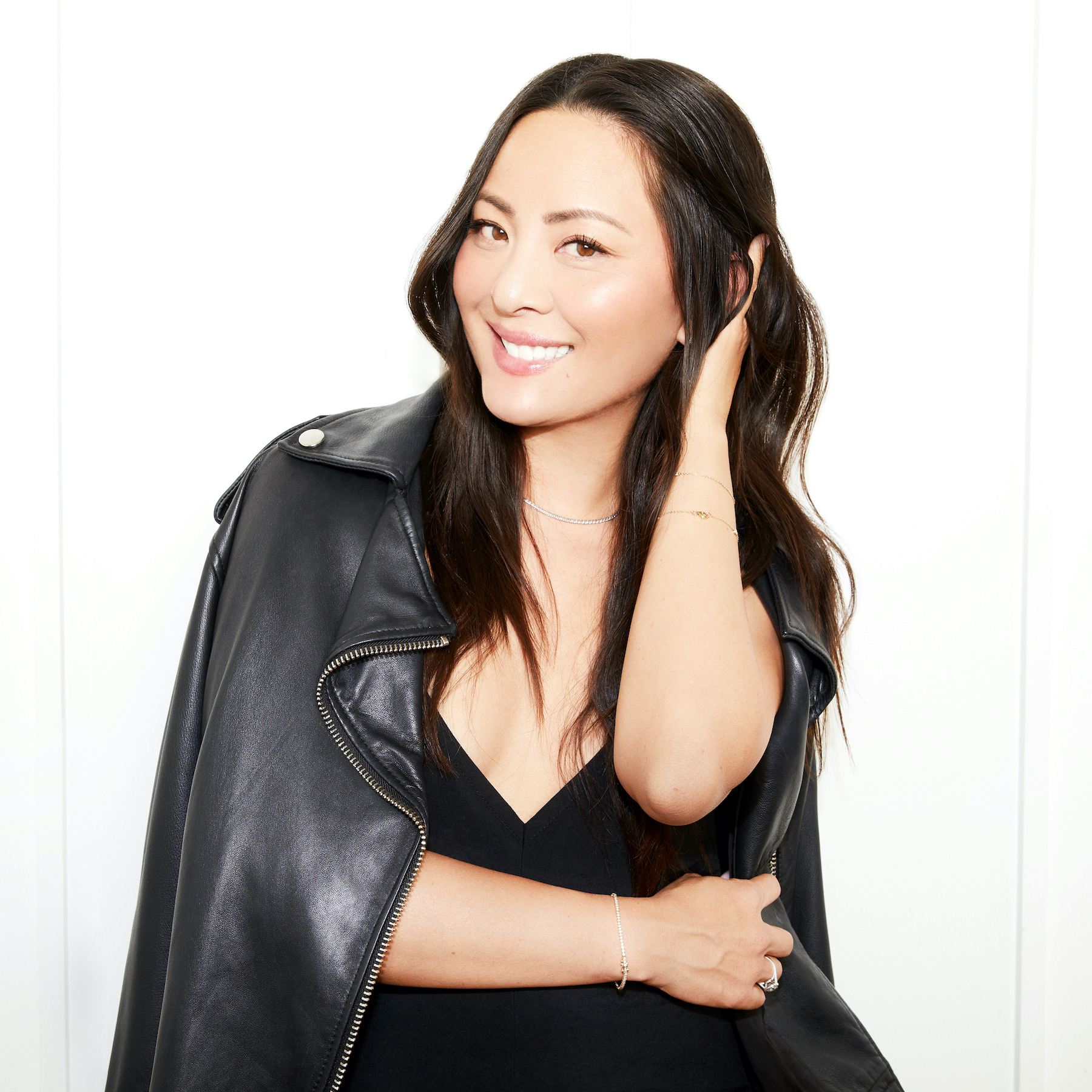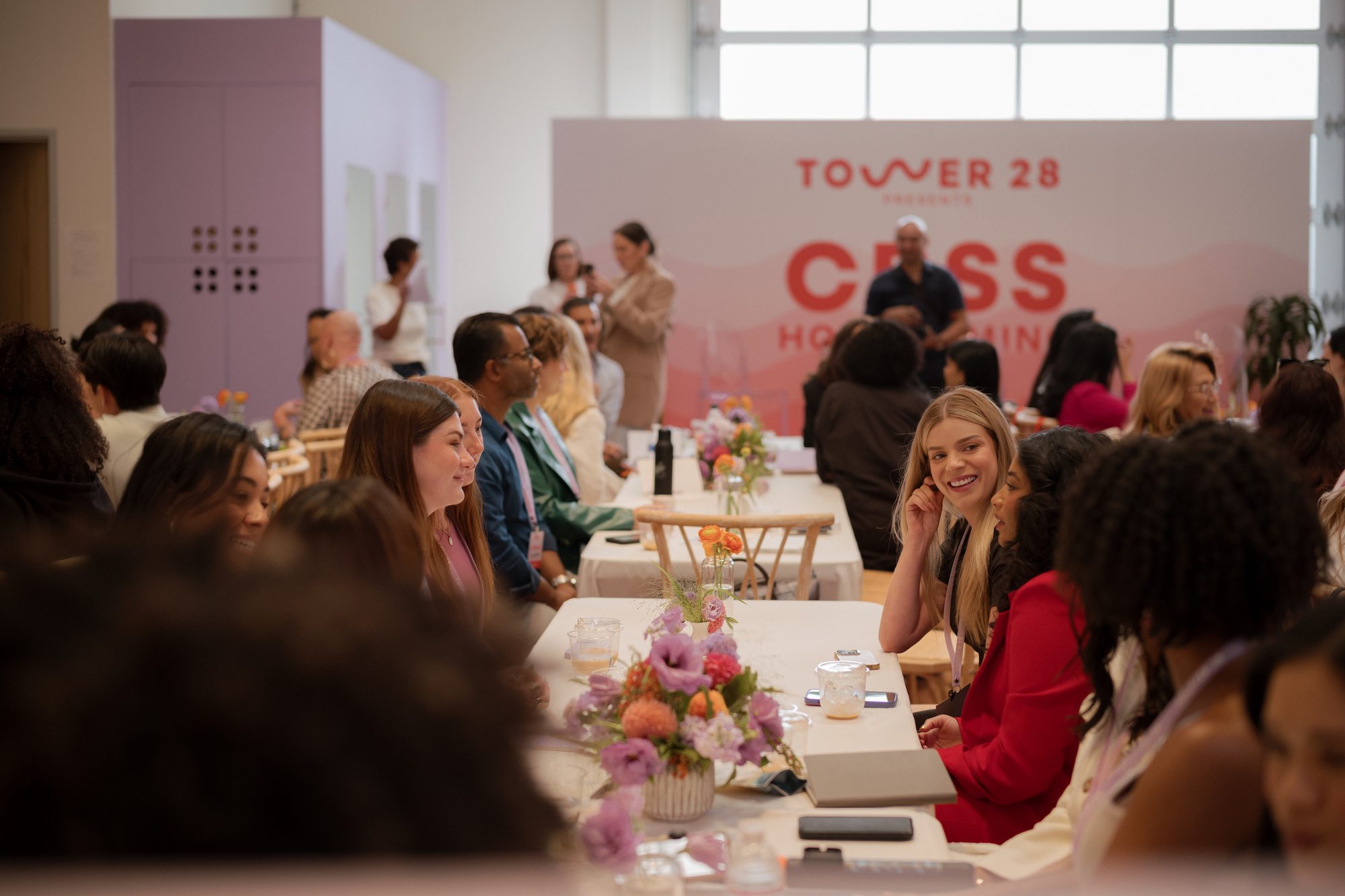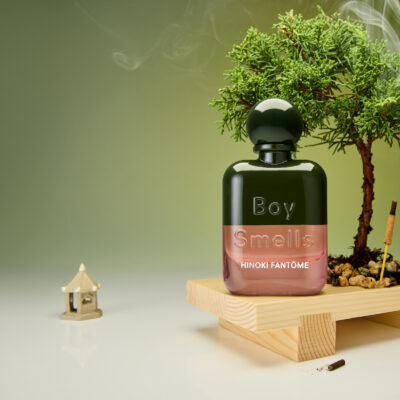
Beyond The Black Square: Tower 28’s Amy Liu On Why DEI Is More Important Than Ever In Beauty
Clean Beauty Summer School, a 10-week mentorship program for minority-owned clean beauty brands and content creators, has been a highlight of Tower 28 founder Amy Liu’s six years as a beauty entrepreneur.
Applications for CBSS, which started in 2020 amid Black Lives Matter protests in the wake of George Floyd’s murder, are now open, and the 10 brands selected have a chance to win over $40,000 in prizes, including cash grants, legal and retail support, and guaranteed buyer meetings with Sephora, Ulta Beauty and Credo Beauty. The ten creators selected compete for a year-long Tower 28 brand partnership valued at $10,000, a $10,000 legal retainer and trip to Los Angeles for an exclusive influencer launch event.
CBSS participants partake in virtual sessions led by the likes of Kristie Dash, head of beauty partnerships at Meta, and Deborah Yeh, global CMO at Sephora. Liu says, “There are people in the industry who, if I look at myself as a sophomore in high school, I look at them as a senior, and being able to talk to somebody who’s a step ahead of you to understand what’s coming makes such a difference.”
Tower 28, launched in 2019 by Liu, a veteran beauty marketer with stops at Smashbox, Kate Somerville and Josie Maran on her resume, has consistently ranked among the top 15 makeup brands at Sephora, where it entered stores in 2020. Last year, its sales jumped 145%. Tower 28’s bestsellers include SOS Daily Rescue Facial Spray, ShineOn Lip Jelly, Swipe All-Over Hydrating Serum Concealer and SunnyDays SPF 30 Tinted Sunscreen Foundation.
SunnyDays SPF 30 Tinted Sunscreen Foundation
SOS Daily Rescue Facial Spray with Hypochlorous Acid
SOS Daily Rescue Facial Spray with Hypochlorous Acid
SOS Daily Rescue Facial Spray with Hypochlorous Acid
Liu previously told Beauty Independent that she raised $500,000 from her personal and professional network to get Tower 28 off the ground. The brand secured a series A round led by Prelude Growth Partners in 2023.
Beauty Independent spoke with Liu about the evolution of CBSS, the importance of diversity, equity and inclusion programs as DEI is under attack, the impacts of tariffs on Tower 28 and the beauty industry as a whole, and the brand’s international expansion plans.
What was the impetus for establishing CBSS?
If you remember what 2020 was like, it was a combination of COVID and us all being at home and on our phones. Simultaneously, it was the height of Black Lives Matter, and you were seeing so many people posting the black square. We posted the black square, and I just felt OK, what is it really doing? At the time, Glossier was giving out grants, and this woman emailed our general email account like, “Hi, I am a beauty founder, and I’m a Black woman. If you’re going to be giving out grants, would you please consider giving me one?”
We launched with some friends and family money. I had just collateralized my house for a loan, and we were not at the point that we could give anybody grants. I said, “I can’t do that, but what I can do is spend some time with you because I’ve worked in the beauty industry for a long time.” I spent an hour on the phone with her, and then afterwards she sent me this nice email that said it made such a difference. I thought, “If I could help this one person, what if I could pull my resources to help more people?”
Being that it was a time when everything was happening in such a virtual way, I thought, “What if I could democratize it because it doesn’t matter where people are coming from?” I started texting friends and founders. I’m proud of the fact that, to my knowledge, we’re the only accelerator that is by the industry for the industry. We’re not attached to a private equity group, we’re not attached to a retailer. It is purely with the intention of creating community and increasing the likelihood of success for these unheard voices in the beauty industry.
How have you evolved it over the years?
The prize has evolved. It started out as the same cash prize, but we’ve added other things like a legal retainer over time. Bill.com and Klaviyo have become sponsors, and we’re trying to incorporate them in a bigger way. We have a set of 10 teachers that teach functional parts of the industry like finance, product development or marketing, and then we have elective courses where it depends on how you’re planning your business model.
We’ve broadened the teachers as times have changed. We’ve always had Kristie Dash from Meta, and we’ve had TikTok, but this last year we had someone from TikTok Shop speak. We’re also talking about bringing on someone to teach about Amazon.
The other part of it is the real life component. Last year was the first year that we did it. We hosted a dinner the night before, and we did the summit. I realized how much people crave true connection and community. Last year was the first year we did a creator track, and we’re planning on doing it again this year.
Why incorporate creators?
The more I have become friends with creators, the more I realize that the journey of becoming a creator is similar to the journey of being a founder. You’re trying to do something you’ve never done before. You’re trying to manage product-market fit. What does the customer want along with your voice? You have to hire people to help you at some point, whether an agent or lawyer.
In the cases of founders and creators, what we’re trying to do is amplify the voices of those who are more unheard. If you’re doing that, then we have a better shot of the space reflecting the way that the world looks in terms of being more diverse. You could argue that now diversity and inclusion are under attack in this country, and it’s a scary time for a lot of people. The more we can democratize access, education and mentorship, even if I can’t democratize fundraising, one begets the other.

Have the conversations around DEI changed the way you think about the program?
It’s even more important than it’s ever been. People feel very under attack right now, and you need community more than you’ve ever needed it. You need people to band together and learn from each other.
Sephora has led by example through their Accelerate program and commitment to the Fifteen Percent Pledge, showing what it looks like when a major retailer uses its platform to drive change. But you can’t rely on large retailers alone. I believe the future of DEI in beauty lies in more grassroots efforts like our Clean Beauty Summer School, initiatives intentionally built to create opportunities, amplify underrepresented voices and help shape an industry that truly reflects the diverse world we live in.
How have you financed CBSS?
I pay for the virtual part of it. By that, I mean it’s my team. Everyone volunteers their time. The money we spend is nominal. We’re already paying for Zoom, I already employ these people. Since we started doing the in real life part, we hired an event producer, and we pay her. She’s managing the sponsors and handling the production of the event.
Everybody who participates, including the speakers at the summit and the people that teach the classes, do it as volunteer work. We have Deborah [Yeh], the global CMO of Sephora, speak. There’s a real opportunity cost to their time that you can’t put a number on. It’s representative of how much people really care that they come back year after year.
Bill.com and Klaviyo were our sponsors last year. We haven’t finalized the sponsorships for this year, but there’s interest. New Voices has been with us every single year. A couple years ago, Rhode and Tower 28 collectively were able to make a donation back to New Voices.
What lessons from Tower 28 do you pass on to founders participating in CBSS?
This is harder given the situation with the tariffs, but I always tell people to make sure they can make unit economics work. A lot of people think in the early days, “Oh, it’s OK, it’s just really expensive right now. As I scale, it’s going to get so much cheaper.” My experience is, as you scale, it’s not that much cheaper. Gone are the days that you could not worry about profitability.
I talk a lot about how you train your customer on how they should expect to see you as a founder show up. You’ll pretty much never see me do a Get Ready With Me. That’s not the way I’m comfortable on screen. People want to know the person behind the brand, but it’s important to be thoughtful about how you want to tell that story and spend your time.
It has never been easier to launch a brand, but never more difficult to break out and get to scale. One of my big takeaways is to make sure that you have a clear point of difference that people care about so that you can establish product-market fit early.
What’s Tower 28’s relationship with Amazon?
We’re exclusive to Sephora, and we are on Amazon. Our intention on Amazon is to be there so that we don’t have gray market. If you are not an official seller on Amazon, it allows other people to sell your products more easily. Because we’re officially with them, then we can play whack-a-mole. We are selling products there, but we don’t really promote it. It’s not huge.
What have you implemented with Sephora that has been successful?
Sephora is the only retailer I’ve worked with for my entire career, so I felt I really understood them, and I also have relationships there. I tell everybody in Clean Beauty Summer School this: Sometimes people have this misconceived perception that you’re going to stack ’em high and let ’em fly, and, as soon as you get into Sephora, you’re just printing money. It’s actually much more of a partnership where your job is to drive demand. Theirs is curation and to help you, but it’s not a one-sided thing.
Sephora has so much data. They have such a macro view of the world and the industry. I as a person can look at other brands and see what they’re doing, but I can’t tell you if it’s working or not. They do meetings, which I think a lot of people know, called “in the kitchen” meetings, and it’s the idea that they are getting in the kitchen and helping you cook a meal, if you will, really figuring out how to differentiate and stay in your lane.

Are there plans to branch outside Sephora with Tower 28?
We are with Mecca already in Australia. I want to be with the best retailer in any market I’m in. It just so happens to be that I believe Sephora is the best for us in many regions. We’ve already launched Sephora Canada. We’re launching into the Sephora UK in five weeks, and we’re launching in Sephora Middle East by the end of the year.
How have the tariffs impacted Tower 28?
The majority of our packaging is made in China, and most of our products are made in the U.S. We have products that are made in Korea, Italy, Canada as well. I would say the retaliatory tariff from Canada is quite hard for us because the tariff is based off of a wholesale number as opposed to a cost of goods number. Then, the exchange rate. We’ve set pricing at a 1.35, and the exchange rate is closer to 1.5 right now.
In the U.S., we are delaying some shipments and hoping that things blow over. Luckily, we have a decent amount of packaging on hand, but, as an entry-level price point brand in a prestige environment, it is certainly not easy to swallow. We’ve built the business in a way that we’ve always been scrappy, so I don’t think it will put us out of business or anything, but it’s something I definitely notice.
If things don’t blow over, do you anticipate raising prices?
We like to say that we’re good, clean, fun, and fun to me has always meant an accessible price point in a prestige environment. I don’t think it’s fun to spend a ton of money on beauty products. We don’t currently have plans to raise prices in the U.S. In Canada, we are looking at what we should do around at least the exchange rate just to get us a little closer to not losing all of our profit basically.
Some brands are rethinking international expansion. Are you?
Right now, we’re all systems go on everything that we’re doing already—the Middle East is happening, the U.K. is happening. We’ve had people come talk to us from Europe, and we hadn’t made any decisions yet.
But it is already not that easy to make money in international markets, so it definitely does go into the calculus to think about the increased cost of not just the tariffs, but raw materials. That’s something that we don’t totally know yet. We’re having conversations with all of our vendors because raw material costs get baked into our vendor costs. We don’t even know the true impact yet.
What impact will tariffs have on the industry as a whole?
It would be silly to not believe that there will be price increases, whether it’s from us or from other brands. I know for a fact a lot of the smaller brands fly a little closer to the sun than we do in terms of being tighter in terms of profitability where they may not be able to weather a financial burden like that.
Of course, whenever that happens, everyone starts looking at their bottom line. And I don’t think any of us really know exactly how price inelastic our customers are. It’s silly to think for any of us, we can just say, “Oh, I could increase all of my prices by $2, and my customer won’t feel it.” I don’t know if that’s true.
It’s getting more expensive and difficult to acquire customers through performance marketing. So, what are the options? I’ve heard that people have been cutting their field teams as a starting point. We are not doing any layoffs or cuts on the team. We’re actually hiring.
What are your future goals?
[For Clean Beauty Summer School], we’re trying to evolve the offering to be more useful. For instance, we were talking about, should we change pitch day? We’ve always done it as almost like a “Shark Tank” pitch day, but, if we really want to be helpful, do we do more one-on-one sessions with brands to give them helpful feedback from an investor?
The intention is always the same: It’s to build community and offer education and mentorship. I don’t think that changes this year.
This interview has been edited for clarity and brevity.




